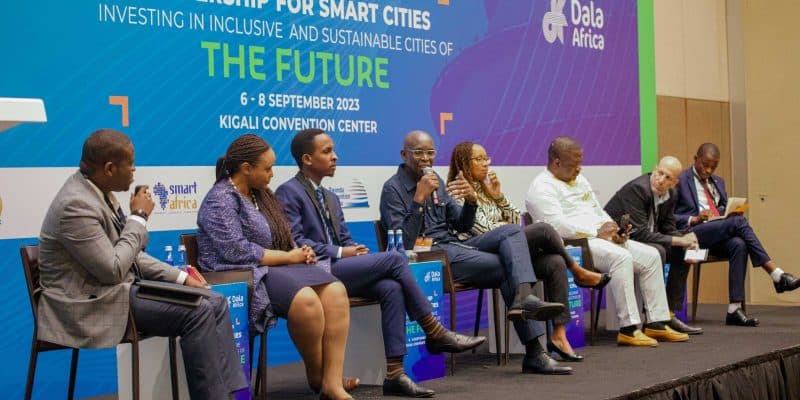The Rwandan government is launching with great fanfare the "Smart City Hub" project, which should encourage the digital transformation of around a hundred cities over the next seven decades.
After several years of trials, Rwanda is moving ahead with the exploitation of information and communication technologies (ICTs) to accelerate sustainable urban development. At the African Smart Cities Investment Summit (ASCIS) held in Kigali from 6 to 8 September 2023, the Rwandan authorities launched the Smart City Hub project.
A total of 100 municipalities to be determined will benefit from innovations facilitated by digital technology and artificial intelligence (AI) in order to considerably improve the daily lives of their populations, particularly in terms of access to basic services. These include remote management of road traffic, e-learning, telemedicine, electronic waste management and payment for shopping by magnetic card. Such solutions already exist in the capital, but are still limited.
“We need to create smart cities in Africa to achieve sustainable urbanisation. The progress we seek depends on our collective commitment to innovation and collaboration. Digital technology is changing the way people traditionally live, work, travel, play and relate to each other,” explains Pudence Rubingisa, the Mayor of Kigali. But the Smart City Hub will above all tackle the problem of the digital divide between neighbourhoods.
Read also- RWANDA: Green City Kigali pilot phase for a green capital is launched
Although it will be financed by the State, the project is being implemented at a time when only 31% of the adult population of Rwanda has access to the Internet, according to the National Broadband Policy and Strategy Agency (MINICT). This is despite the presence of around ten telecoms’ operators across Rwanda. To remedy this, the Rwandan authorities launched an operation in 2011 to link Rwanda to the rest of the world via submarine cable. This should replace the “costly and slower” satellite links, according to the United Nations.
Benoit-Ivan Wansi







